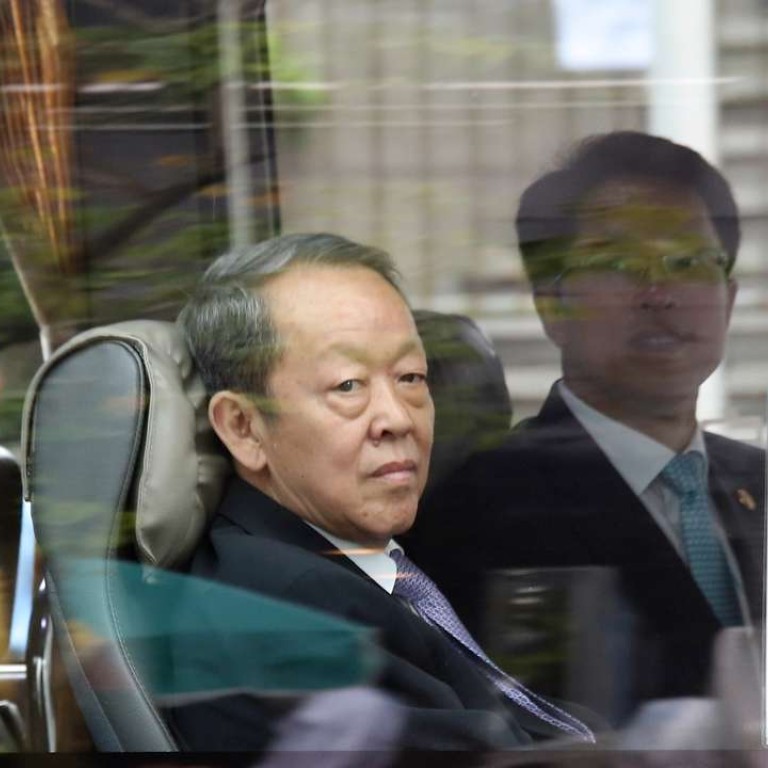
Beijing not ready to show its hand on Hong Kong chief executive preference, top official hints
Wang Guangya adds criterion that candidates must be someone the central government can trust
Beijing’s man in charge of Hong Kong affairs has hinted the central government is not ready to show its hand on its preferred choice in the chief executive race, insisting it will be studying the performance of “every” candidate.
Such a stance is not the only sharp difference in Beijing’s approach in the March election compared to how it handled the 2012 race. Back then, it hinted as early as September the previous year it was leaning towards front runner Henry Tang Ying-yen.
And this time, Wang Guangya, director of the State Council’s Hong Kong and Macau Affairs
Office, added one more criterion for Hong Kong’s next leader: he or she must be someone the central government can trust.
Four years ago he suggested the chief executive must possess three qualities: to love the country and love Hong Kong, be able to win the support of Hongkongers, and be capable of governing.
Wang shared his views in an interview with the pro-establishment magazine Bauhinia. The
interview, which took place a week ago, will appear in the magazine’s January issue.
Wang told the magazine: “From the central government’s point of view, the chief executive ... should be able to reflect to the central government the Hong Kong situation comprehensively, accurately and objectively.
“The CE should also explain matters to Hong Kong residents and implement the central government’s policy in a manner that complies with local laws and is appropriate to the city’s situation.”
The chief executive ... should be able to reflect to the central government the Hong Kong situation comprehensively, accurately and objectively
Wang noted that some aspirants had announced their bids while more candidates might yet come forward.
“Every CE candidate should work towards the long-term well-being of Hongkongers and lead them forward,” he said. “The central government will also observe every candidate and seriously analyse
and research their governing principles and leanings.”
The March election would hopefully be reasonable, healthy and constructive and help bring about a “highly civilised” election culture in the long run, he added.
Wang also reiterated that calls for Hong Kong independence and self-determination had crossed the bottom line of “one country, two systems”, and it was a matter not just for Hong Kong but also
for the central government to manage.
candidacies.
Ip and Woo both expressed confidence on Friday that they satisfied the criteria listed by Wang, with Ip highlighting that she was the only candidate who had taken part in direct elections.
Woo said the current government had not “objectively” conveyed the Hong Kong situation to Beijing.
Lam, meanwhile, will face a grilling by lawmakers next Friday over her handling of a surprise HK$3.5 billion deal to build a museum to house a collection loaned by Beijing’s Palace Museum.
Critics have attacked Lam for skipping the consultation process required by law in deciding the change of use in the prime cultural site.
On Wang’s remarks that Beijing would conduct a close observation of all candidates, Professor Lau Siu-kai, vice-president of the Chinese Association of Hong Kong and Macau Studies, said it showed Beijing had yet to decide who should lead Hong Kong next.
“It’s telling aspirants to make use of the next month or so to demonstrate their political capacity ... and avoid fatal scandals,” Lau said.
“Even if Beijing has any preference on candidates, it is surely not yet final.”
A spokesman for the board of the West Kowloon Cultural District Authority released a statement late on Friday night saying the board unanimously approved the building of the Palace Museum at a special meeting on November 28. He said the chairman had consulted the vice-chairman and the chairman of the then museum committee prior to the meeting.
“The board warmly welcomed this new museum project ... and learned that it was based on long-established cultural cooperation between the Leisure and Cultural Services Department ... and the Palace Museum,” the spokesman said.
The spokesman added that one of the official functions of the cultural district was to enhance cultural exchange and cooperation between Hong Kong and the mainland.
“It is clear that the Hong Kong Palace Museum will provide that platform for not only enhanced cultural exchange between Hong Kong and the mainland, but also through Hong Kong, between the Palace Museum and the world,” he said.


